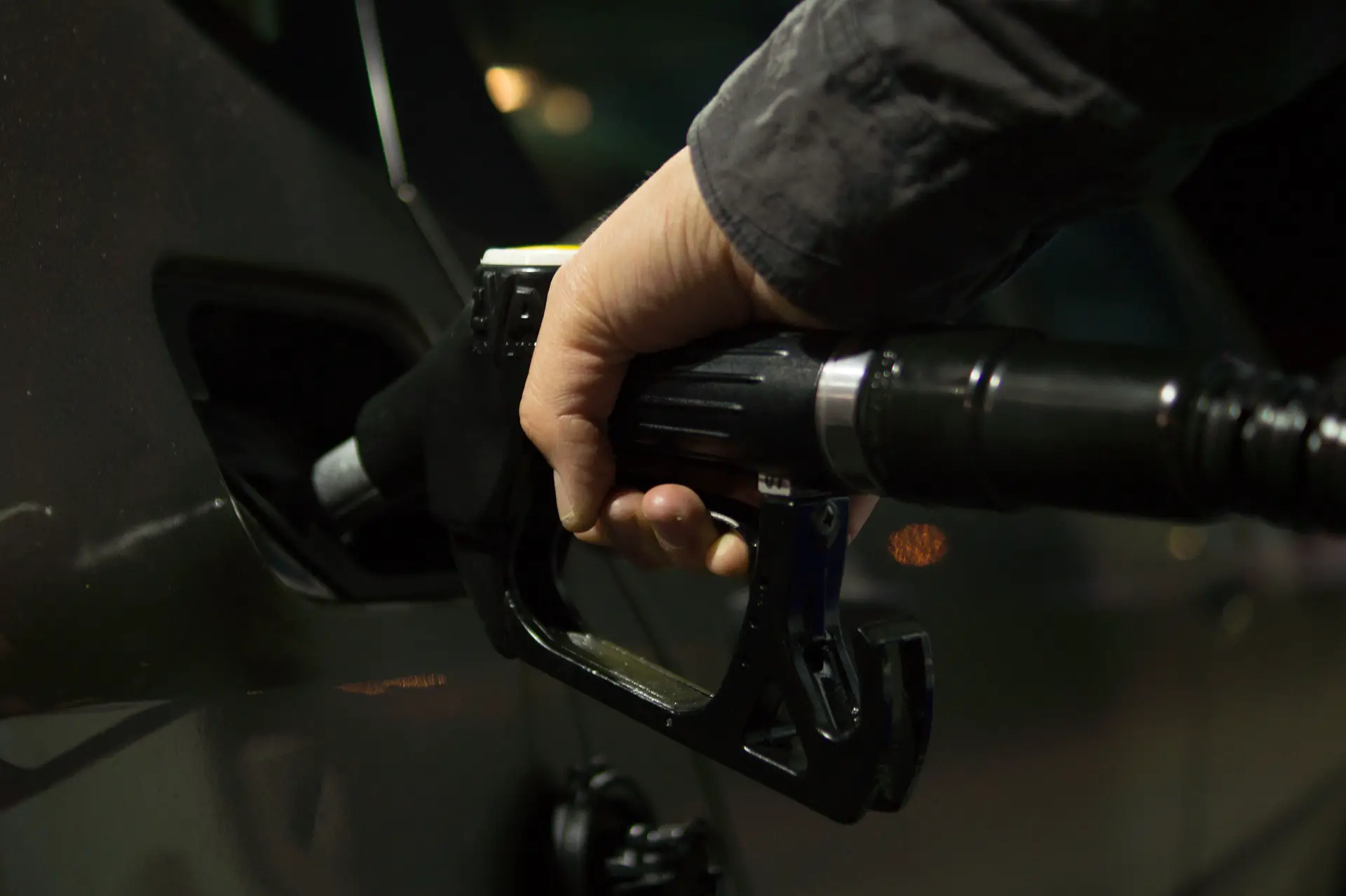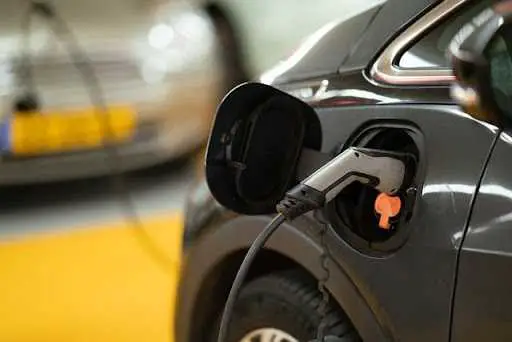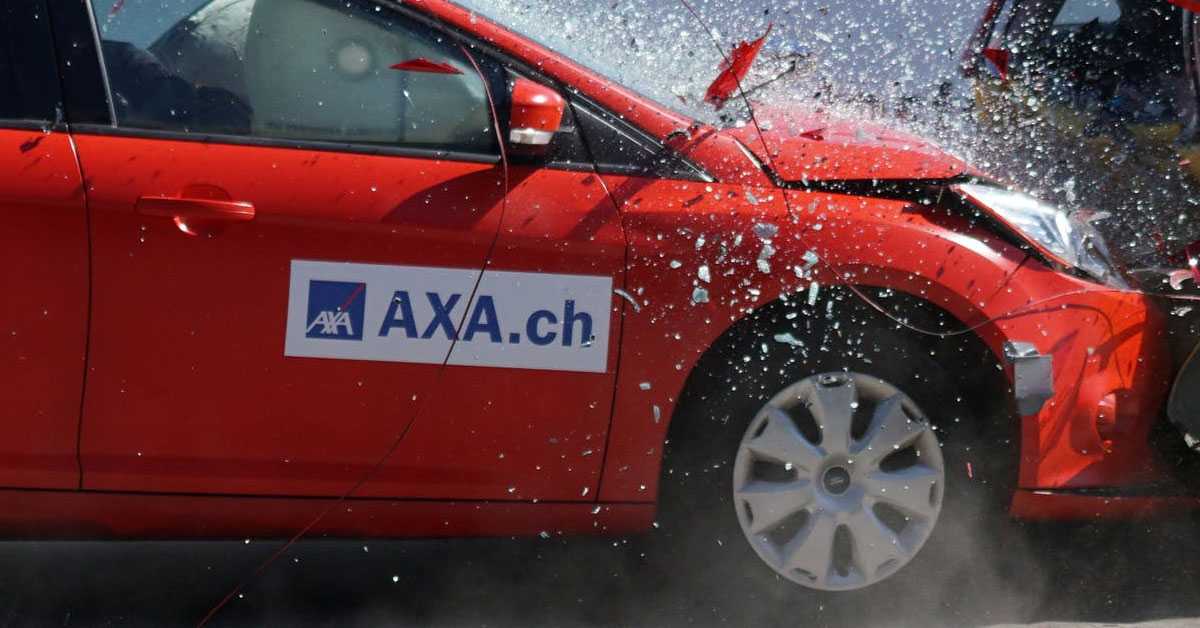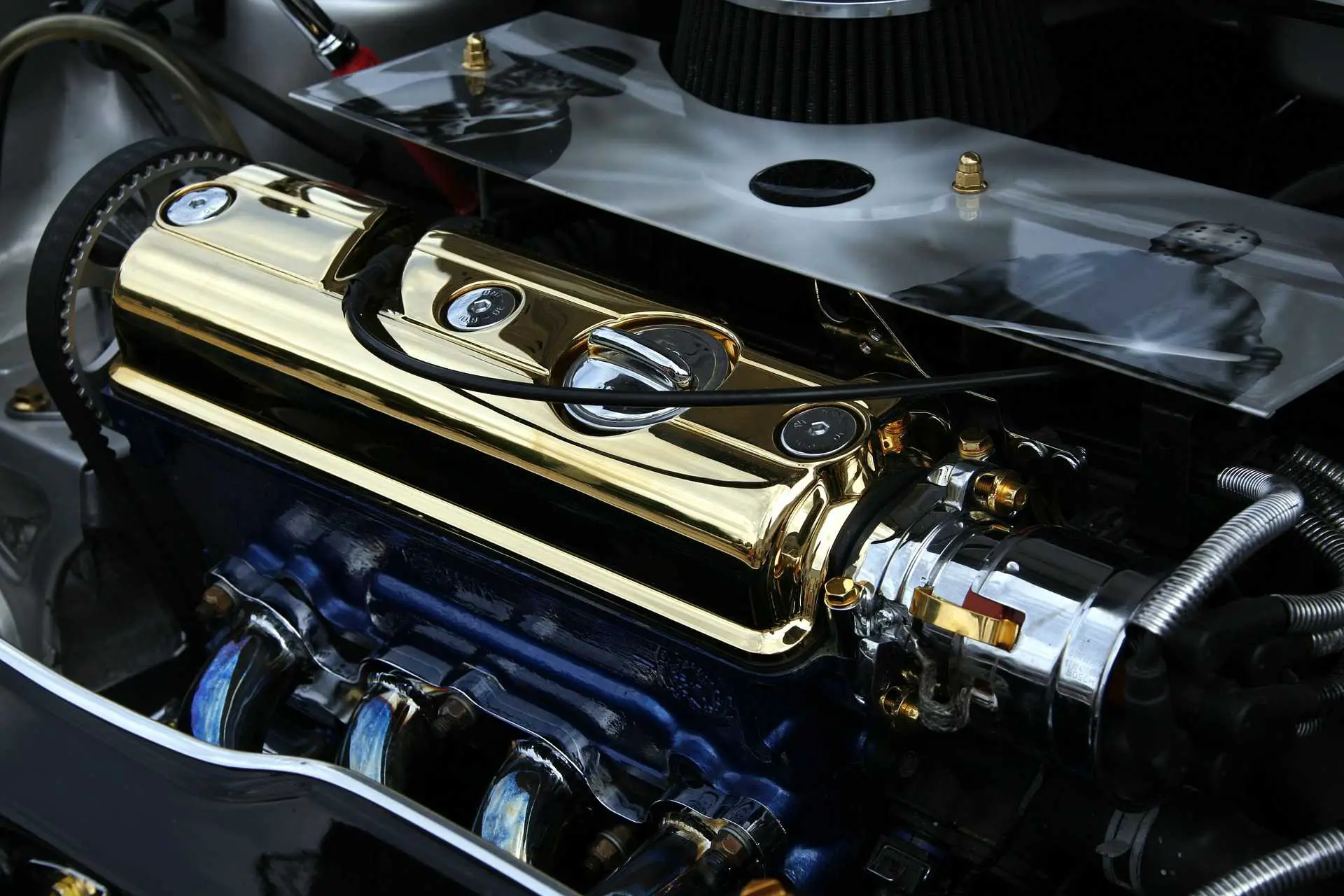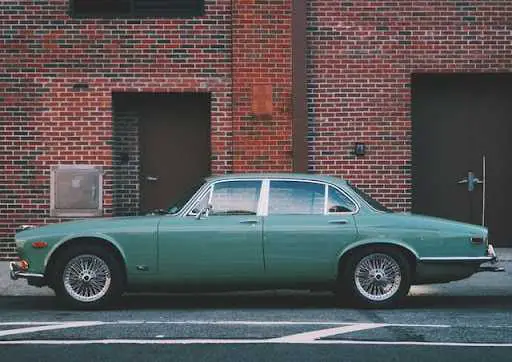Can Old Cars Run On Unleaded Gas?
Driving a classic car can be a real source of pride and joy for many car owners. However, they may be more challenging to maintain as they get older, and many modern services may not fit them. Can old cars run on unleaded gas? – this could be one of your questions.
Cars manufactured before the 1970s were designed to run on leaded gas because lead increased the octane levels and lubricated the engine parts. While many classic car owners don’t run into any issues using unleaded gas, it’s not recommended. It can damage your engine through valve seat regression.
Read on to learn more about using unleaded fuel in old cars. I’ll also go over some alternatives to unleaded fuel and how you can protect your car engine from harmful fuel types.
Table of Contents
- Is Unleaded Fuel Good for Old Cars?
- Ethanol is More Harmful than Unleaded gas for Old Cars
- Alternatives to Unleaded Gas
- Final Thoughts
Is Unleaded Fuel Good for Old Cars?
All the cars produced before the 1970s had engines that run on leaded gas. The lead added to fuels in that time had two functions:
- It increased the octane rating in the vehicle. Higher octane levels can increase the fuel’s ability to resist pinging or knocking.
- It produced deposits on the valves that protected them against wear and corrosion.
But then there were concerns about the effect of lead on human health and the environment. In the 1970s, leaded gas was prohibited in the US, and car manufacturers started to adapt their engines to these regulations.
If you have a car with an engine built for leaded gas, it can’t run well with unleaded gas. The engines in these cars feature fuel valves that need lead to protect them from corrosion. So, if you put unleaded gas in your classic car, its engine may get seriously damaged. The biggest damage is valve seat recession, which reduces the valve’s ability to seal completely and affects engine compression.
Another component of old cars built for leaded gas is the ignition firing. If you use the wrong type of gas for your classic car, you’ll increase the chances of misfiring. So, if your car’s manufacturer manual states you need leaded gas, you want to follow the instructions.
Ethanol is More Harmful than Unleaded gas for Old Cars
Another element added to modern fuels is ethanol to make them more environmentally friendly. Ethanol is plant-based and has better ignition properties that can help modern cars. It has been used in modern fuels since 2005 as an attempt to increase renewable fuels. But it can be highly corrosive and damaging to older car engines.
The amount of ethanol added to modern gasoline can be different from brand to brand and country. You may have heard of the E10 gas in gas stations, which means the gas has 10% ethanol and 90% gasoline. Other percentages are 15% and 85T, which aren’t as common in the US, although there are nearly 4000 E85 fuel stations around the US.
Modern fuel suppliers are increasing these ethanol degrees, which means it’s getting difficult for classic car owners to find proper gas for their cars.
Ethanol can damage your classic car for the following reasons:
- Ethanol is a hygroscopic substance, which means it absorbs moisture. The moisture that ethanol absorbs can cause metal components in the metal fuel tank to rust as it condenses. That’s even more dangerous if you keep your car in the garage for long periods.
- Ethanol can affect the performance of your classic car as it reduces power by 30%.
- Since ethanol is highly corrosive as a powerful solvent, it can damage your fuel tank, especially without lead to protect the tank from corrosion.
So, regardless of the type of fuel you put into your tank, make sure it’s ethanol-free. However, since adding ethanol to modern fuels is mandatory, finding 100% ethanol-free fuel may be difficult. Still, you can use some websites, such as pure-gas.org, that list the gas stations that sell ethanol-free gas in Canada and the US.
Here’s more on the influence of ethanol on old cars:
Alternatives to Unleaded Gas
Although the best fuel for every classic car has been determined by its manufacturer, you may not always find the best possible fuel for your vehicle. Here are some alternatives that can be least damaging to your classic car’s engine:
Fuel Additives
If you can’t find leaded gas in your area, some solutions are available that can reduce the harmful effect of unleaded gas on your car. One of these solutions is the additives that work like lead by simulating its mechanism in protecting engine parts. These additives don’t violate the emissions standards, so you don’t need to worry about environmental and health issues.
They help improve the engine’s performance by increasing the octane levels and adding lubricants and anti-corrosion materials. You can also avoid other problems such as stalling, weak acceleration, stumbling, and rough idling in addition to increasing power and efficiency.
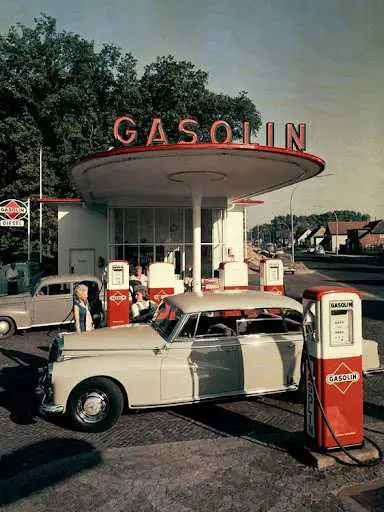
You can find fuel additives in different forms of powder, liquid, and pill. And since they come in a wide range of functions, such as lubrication, deposit control, octane enhancement, etc., it’s better to consult your mechanic and ask them to give you the most suitable one for your car.
You may even want to use additives to minimize the influence of ethanol on your engine if you can’t find ethanol-free gas.
Remember to use these additives every time you fill your tank because they don’t leave any residues. And although it’s harmless to use too much additive, it’s impossible because they have special bottle shapes that let you know how much to use.
Octane
As mentioned earlier, octane levels in fuel help avoid engine knock. It happens when gas is ignited in the cylinder prematurely, reducing fuel efficiency and damaging the engine. While modern cars are virtually knock-free, it can happen in older cars because of lower oxygen levels in the fuel.
Premium gas has the highest octane level (91-93), while the degree is 89 for mid-grade and 87 for regular gas. Although you can see the octane rating of your car in its manual, getting premium gas always pays by improving efficiency. That’s because premium gas resists premature ignition, which is more common in older engines.
You may also need to adjust your engine’s timing. That’s because the change in the octane number may lead to knocking, which can damage your engine. Conversely, if you make any changes and repairs to your engine, you should consider changing the octane rating, too. That’s because manufacturers recommend octane ratings based on the conditions of the original engine.
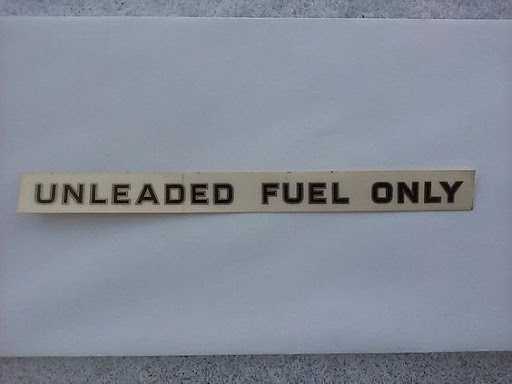
Converting the Engine
Although unleaded fuel can potentially damage your fuel tank valves, not all classic car owners have experienced these problems. But the chances of damage can increase with hard use. For example, if you have a truck made before the 1980s and use it to pull a trailer, you need to be more careful.
If finding high-octane, ethanol-free gas is an issue for you, or you don’t want to add any additives to your tank, you can convert your engine. Many classic car owners have opted for engine conversion to make their engines more corrosion-resistant.
Engine conversion for unleaded fuel involves changing the cylinder head. Your mechanic will replace the old “soft” valve seats with new seat inserts made of hardened alloy. They machine these seats to suit the valves – sometimes, the valves may also need recutting. Then, they vacuum-test the assembled components to make sure of a tight fit.
Convert to LPG
This option may be the first choice if you want to go green and reduce your carbon footprint. Although it’s less environmentally friendly than hybrid or electric cars, it’s a decent option for classic cars. It also costs much less than gas, which can be a huge incentive for many car owners.
You can also make your car bi-fuel to have the option to use gas whenever you need it. However, a classic car owner’s only problem is that this conversion will make the car lose its authenticity. That said, if you use your car regularly, the lowered costs can outweigh the authenticity issue.
Another thing to consider is that converting your car to LPG can be costly, which may not seem like a reasonable investment if you don’t use your car much. But if you use your car regularly, you can offset the costs with lowered fuel costs and improved efficiency and performance.
In addition, it’s less efficient than gas (around 27% lower efficiency), but the higher octane rating will compensate for it.
If you decide to do the conversion, make sure the conversion system complies with regulations, including EPA guidelines. Consult your mechanic before making any decisions and make sure it’s the best option for you.
Final Thoughts
While classic car owners extensively use unleaded fuel for their cars, it can potentially damage their vehicles. Classic cars’ engines have soft valves that rely on deposits from lead to protect them from corrosion. You don’t have that option with modern unleaded fuels because the fuel doesn’t leave any deposits.
You can convert your engine by changing its valves, use additives, convert to LPG, and use high-octane fuel as a substitute for unleaded gas. And always remember to stay away from ethanol fuels since ethanol can damage your engine.
Amazon and the Amazon logo are trademarks of Amazon.com, Inc, or its affiliates.

